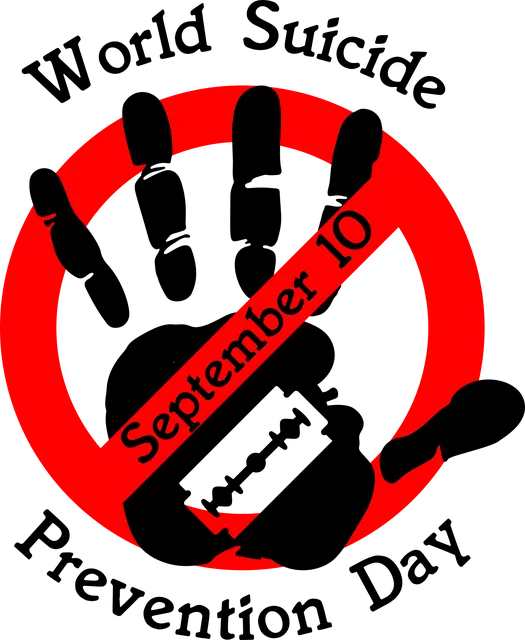Mental health professionals at Wheat Ridge Kaiser Permanente prioritize robust risk management as a cornerstone of quality care. They identify potential hazards, from ethical dilemmas to treatment risks, and implement strategies to mitigate their impact. The organization supports comprehensive mental health coverage plans, promotes mental wellness coaching programs, and fosters open dialogue for enhanced patient safety and improved overall mental wellness. Effective risk management involves staying informed about insurance policies, using tools like the Risk Assessment for Mental Health Professionals (RAMHP), incorporating cultural competency training, encouraging coping skills development, and continuous learning to adapt to policy updates and industry best practices.
In today’s demanding healthcare landscape, robust risk management planning is paramount for mental health professionals. This comprehensive guide explores essential strategies tailored specifically for navigating the unique challenges within the mental health domain. From understanding key concepts to implementing effective mitigation plans and leveraging assessment tools, we delve into a structured approach. Inspired by best practices from institutions like Wheat Ridge Kaiser Permanente’s mental health coverage, this article equips professionals with the knowledge to safeguard patients and optimize practice resilience.
- Understanding Mental Health Risk Management: A Comprehensive Overview for Professionals
- Identifying Potential Risks: Wheat Ridge Kaiser Permanente Mental Health Coverage and Beyond
- Developing a Risk Mitigation Plan: Strategies for Effective Practice
- Implementing Risk Assessment Tools: Measuring and Addressing Vulnerabilities
- Continuous Improvement: Monitoring, Evaluation, and Updating Your Risk Management Strategy
Understanding Mental Health Risk Management: A Comprehensive Overview for Professionals

Mental health professionals are often on the front line when it comes to managing and mitigating risks associated with client care. Effective risk management is not just a compliance issue, but a crucial aspect of providing quality mental health services. It involves a comprehensive understanding of potential hazards, from ethical dilemmas to specific treatment risks, and implementing strategies to prevent or minimize their impact.
At Wheat Ridge Kaiser Permanente, we recognize the importance of robust risk management in mental health care. This includes ensuring appropriate coverage for services like depression prevention and resilience building through our mental health coverage plans. We also support the development of mental wellness coaching programs as a proactive approach to enhance client outcomes. By fostering an environment where professionals can openly discuss risks, learn from each other, and access resources for resilience building, we aim to optimize patient safety and improve overall mental wellness.
Identifying Potential Risks: Wheat Ridge Kaiser Permanente Mental Health Coverage and Beyond

Mental health professionals face a unique set of challenges, and identifying potential risks is a crucial step in any risk management plan. One notable aspect to consider is the impact of insurance coverage, such as Wheat Ridge Kaiser Permanente mental health coverage, on access to care and patient outcomes. Understanding the scope and limitations of this coverage can help professionals navigate financial barriers and ensure patients receive the necessary services.
For instance, many mental health service providers are aware of the Community Outreach Program Implementation initiatives that promote positive thinking and accessible care. By familiarizing themselves with insurance policies, including Wheat Ridge Kaiser Permanente’s offerings, professionals can proactively address potential risks related to billing, coverage limits, and patient eligibility. Effective risk management involves staying informed about such factors to optimize patient care within the constraints of available resources.
Developing a Risk Mitigation Plan: Strategies for Effective Practice

In the realm of mental health care, risk management planning is a cornerstone for professionals aiming to provide effective and safe services. For practitioners under Wheat Ridge Kaiser Permanente mental health coverage, developing a robust Risk Mitigation Plan (RMP) offers strategic guidance in navigating complex patient scenarios. An RMP involves a systematic approach to anticipate potential risks and implement proactive solutions, thereby enhancing the overall quality of care. This plan should encompass various strategies, such as integrating Self-Awareness Exercises to foster practitioners’ emotional intelligence, which is pivotal for recognizing and managing personal biases or stress triggers.
Moreover, staying informed about Mental Health Policy Analysis and Advocacy ensures that professionals are abreast of industry developments and regulatory changes. By staying aligned with the latest policy landscape, mental health providers can mitigate risks associated with compliance issues and ethical dilemmas. Incorporating Self-Esteem Improvement techniques within the RMP also contributes to practitioners’ resilience, enabling them to handle challenging situations with enhanced confidence and composure. Such proactive measures not only safeguard professionals but also positively influence patient outcomes.
Implementing Risk Assessment Tools: Measuring and Addressing Vulnerabilities

Implementing risk assessment tools is a cornerstone of effective risk management planning for mental health professionals. These tools, such as the Risk Assessment for Mental Health Professionals (RAMHP), help identify and measure vulnerabilities among clients. By utilizing RAMHP or similar frameworks, healthcare providers at Wheat Ridge Kaiser Permanente can gain insights into potential risks associated with specific client populations, enabling them to tailor interventions accordingly. This proactive approach not only ensures comprehensive mental health coverage but also fosters safer environments for both patients and practitioners.
Incorporating Healthcare Provider Cultural Competency Training enhances the effectiveness of risk assessment by promoting understanding of diverse patient backgrounds and needs. Equipping mental health professionals with cultural sensitivity empowers them to recognize and address unique risks that may be overlooked otherwise. Additionally, encouraging clients to develop coping skills as part of their treatment regimen can further mitigate vulnerabilities. Through these integrated strategies, Wheat Ridge Kaiser Permanente aims to deliver holistic care while prioritizing the well-being of both patients and staff.
Continuous Improvement: Monitoring, Evaluation, and Updating Your Risk Management Strategy

Mental health professionals must embrace continuous improvement to ensure their risk management strategies remain effective. Regular monitoring involves staying abreast of changes in mental health policies, like those offered by Wheat Ridge Kaiser Permanente, and industry best practices. This includes keeping up with advancements in Mental Health Education Programs Design and understanding evolving cultural sensitivities within mental healthcare practice.
Evaluation is a crucial step where professionals assess the success of their risk management plans. By analyzing case studies and patient outcomes, they can identify areas for improvement. Incorporating feedback from colleagues and patients through surveys or focus groups further enhances this process. Regular updates to risk management strategies are essential, reflecting changes in regulations, research findings, and community needs. This dynamic approach ensures mental health professionals provide up-to-date, culturally sensitive care aligned with current Mental Health Policy Analysis and Advocacy.
Mental health professionals face unique challenges that demand a proactive approach to risk management. By understanding the comprehensive overview presented in this article, identifying potential risks like those outlined in Wheat Ridge Kaiser Permanente mental health coverage, and implementing effective strategies for mitigation, professionals can create safer, more resilient practices. Continuous evaluation and updating of risk management plans are essential to staying ahead of emerging threats and ensuring optimal patient care.






